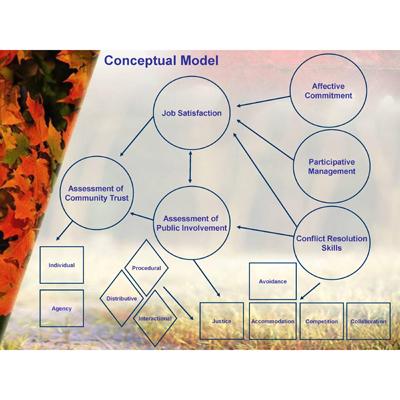Conflict Resolution through Trust and Relationship Building: Natural Resource Managers’ Perceptions

Public forest land managers face a difficult job balancing ecological, social, and economic considerations. Recent efforts to standardize and formalize public involvement have left many local communities adjacent to resource areas feeling marginalized, creating hard feelings and opposition. One key to maintaining positive interactions is developing local community trust in agencies. NSRC researchers investigated existing trust between public land management agencies and local rural communities in the Northern Forest region.
Researchers surveyed over 900 natural resource managers in Maine (Department of Conservation, Department of Environmental Protection, and Department of Marine Resources), New Hampshire (Division of Forests and Lands and Department of Environmental Services), and Vermont (Natural Resources Board and Department of Forests, Parks & Recreation) and on the White Mountain National Forest. Forty-nine percent of respondents felt the public was satisfied with their agency’s natural resources management, while only 39% agreed that the public trusts their agency’s management decisions.
Researchers evaluated employee morale and conflict resolution skills, factors that affect trust between agency and community members. Employee morale was high across all agencies, and managers rated their agency’s public involvement process as equitable, uncontroversial, warranted, neutral, just, and fair. To sustain trust between communities and agencies, clear communication within agencies and with the public is crucial, and the reward structure within agencies for engaging in public involvement should be assessed. Finally, managers reported limited training in public communication techniques, so training programs could be useful for improving community engagement and trust.
